What is Environmental Self-Care and Why Is It Important?

Photo by Katya Austin on Unsplash
Last week I wrote on why self-care is important. We hear the term all the time, but it’s definitely a whole lot more than your ordinary buzzword.
Self-care shapes our experience in life. From how we feel when we wake up and go to work, to whether or not we feel rested after our rest time. It’s setting boundaries, it's balancing time with others with time alone, it’s doing the dirty work involved in the healing process. When we practice good, quality self-care, we become more resilient, happy, and healthy.
SAMHSA outlines eight dimensions of wellness, including emotional, environmental, financial, intellectual, occupational, physical, social, and spiritual. Today I’m going to dive into the dimension of environmental wellness, and how we can practice environmental self-care.
What does environmental self-care mean?
Your environment isn’t just the trees outside your house, it’s the spaces where you spend a majority of your time. It’s the air inside your home, the clutter on your desk, your office, and even the space inside your car.
I know I can fall into the habit of letting my car get messy, as it’s just the space I use to commute to and from my office. But that space is where I spend 40-50 minutes of my day, and its environment can be as important as the environment inside my home.
Your home.
The space inside your house contributes a great deal to your health and well-being. When we let things get messy, it can contribute to stress, anxiety, and feeling out of control, according to researchers.
A lack of cleaning can also allow for indoor allergens and mold to accumulate. Allergens include dust mites, pollen, and pet dander, and while they tend to be a part of indoor environments, excessive build-up of these things can wreak havoc on your health, especially if you have respiratory issues like asthma.
Decluttering your spaces can help with this. The less clutter you have, the fewer places indoor allergens have to hide. Removing clutter will make cleaning much easier.
With mold, it’s virtually impossible to eliminate all of it, but you can definitely minimize it.
Prolonged mold exposure can lead to symptoms like coughing, headache, and congestion. Certain molds contain mycotoxins, which have been linked to certain cancers and kidney issues.
To minimize mold, identify sources of dampness in your home and clean them with vinegar or borax. Mold also grows on food, so make sure you keep your fridge clear of rotting food and give it a good cleaning once in a while.
Your office.
Clutter can lead to poor concentration. If you can’t concentrate, work gets hard, and when work is hard, you’re unproductive. If you’re going to be at work, you might as well be productive, right?
Depending on your job, you may spend a lot of time in your office, so its environment will greatly contribute to your well-being, too.
Declutter, declutter, declutter.
If you want to practice good self-care for your office, start by decluttering it. Go through old papers. Shred what’s no longer needed. Organize what you do need to keep so that you can find it easily, and always know what you have.
Add plants to your office.
While plants may not purify the air as commonly believed, they do still have a lot of benefits when added to your space.
Plants in the office can increase productivity and replenish focus while increasing overall workplace happiness. Who doesn’t want to be productive and happy at work?
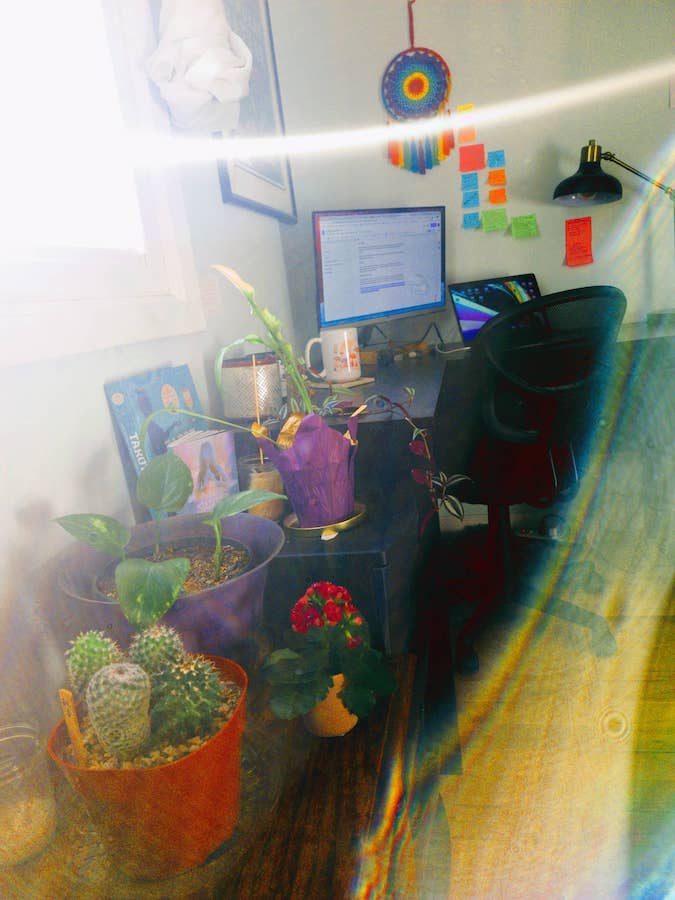
My home office. Lots of plants. Artwork. No clutter. A sunny window. A cup of coffee. Love.
Your car.
Ahh, this is the hardest one, IMHO.
While many people may not be commuting as much as they used to since the pandemic, it still seems the average commute time is around 26 minutes each way.
Even if you spend less time in your car, that time can be valuable.
For me, the commute to my office can be meditative, and give me a little peaceful alone time before I work closely with people’s energy all day.
On my way to work, I like to blast music and sing along loudly to it (even though I’m not really a great singer) because it’s energizing and it gets me in a good headspace for work. On the way home, my commute helps me wind down, and listening to podcasts like Theories of Everything helps me detach from the long workday I just finished.
Extra dirt or clutter in the car can affect you like the extra dirt or clutter at home.
A dirty air filter closes you in with the same dust, pollen, and dander you inhale in a dirty house. Making sure you get a fresh air filter regularly, cleaning the surfaces of your car to remove dirt, and keeping the space clean and clutter-free is also practicing good environmental self-care.
The space outside your home.
Getting outdoor time and connecting with nature is so important for our health. Humans weren’t meant to live indoors the way our communities have been conditioned to in the past several decades, and our health may be suffering for it.
Spending time in nature can improve our physical wellbeing, reduce blood pressure, heart rate, tension, and stress hormones. All this can also lead to reduced feelings of anxiety and depression.
Even viewing scenes of nature is known to have an impact.
Research done in hospitals has shown patients with windows that face natural scenes or have plants in their rooms will recover faster than those that don’t.
Creating a natural space outside can be great for practicing environmental self-care. One example is keeping a garden. Microbes in the soil are actually scientifically proven to improve immune function and boost your mood as effectively as antidepressant drugs. Keeping a garden also means fresh, in-season produce straight to your kitchen.
Don’t have much of a green thumb? That’s okay. There are easier plants, like certain perennial flowers, that you can plant around the outside of your home that are more low-maintenance than a vegetable garden. Even planting a tree outside can give you some nature to gaze at.
If that still seems overwhelming, try starting with a snake plant in your house.
Seriously, they are so low-maintenance...
I had one in my windowless office for months, swearing I’d stick it in the sunny lobby a couple of times a week, but kept forgetting. Even after weeks of no natural sunlight and forgetting to water it, it thrived. When covid shut down my business temporarily, I brought it home, stuck it in my living room, and it exploded. Hardly any effort needed.
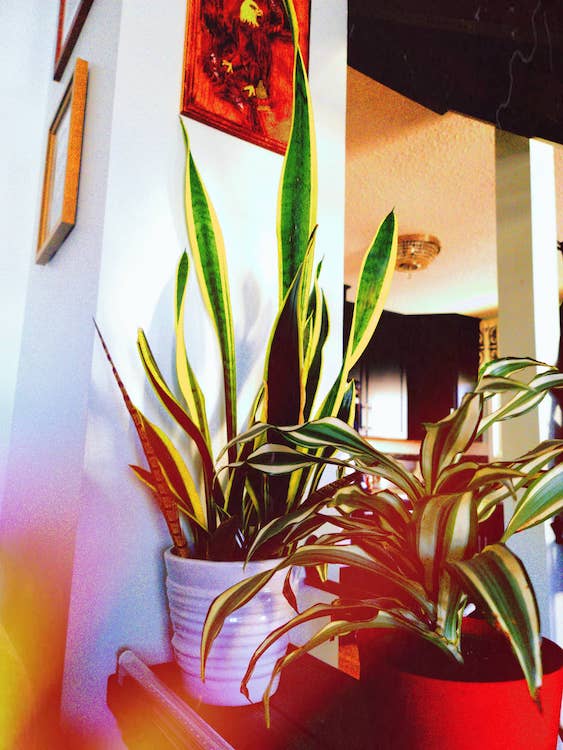
My super easy snake plant. Also another plant I got from Trader Joe's. I forget what it is, but it's basically been impossible to kill.
Other ways to practice environmental self-care.
- If you are feeling like your energy is stuck lately, try rearranging your home. Moving furniture around can make your own energy flow differently, and sometimes it can help facilitate a change you need.
- Adding art to your home can do a lot for increasing aesthetics as well as decreasing stress. Studies have shown that making and viewing art can decrease stress hormones.
- Monitoring your technology time can also be a good environmental self-care practice. Too much screen time can increase obesity, contribute to disrupted sleep patterns, and increase feelings of stress and anxiety. Too much screen time is also known to decrease white matter in the brain (meaning your left and right brain don’t communicate as easily) and contribute to atrophied gray matter, such as in the insula which allows us to feel compassion and empathy.


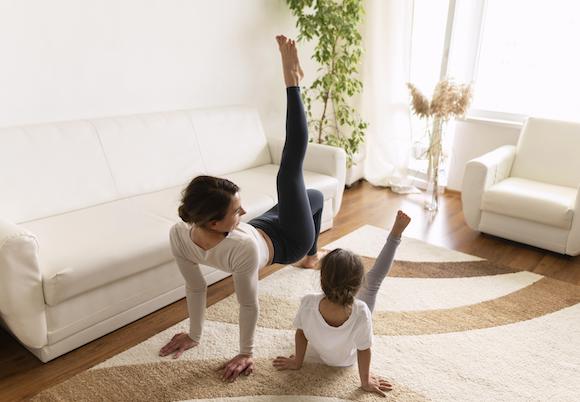



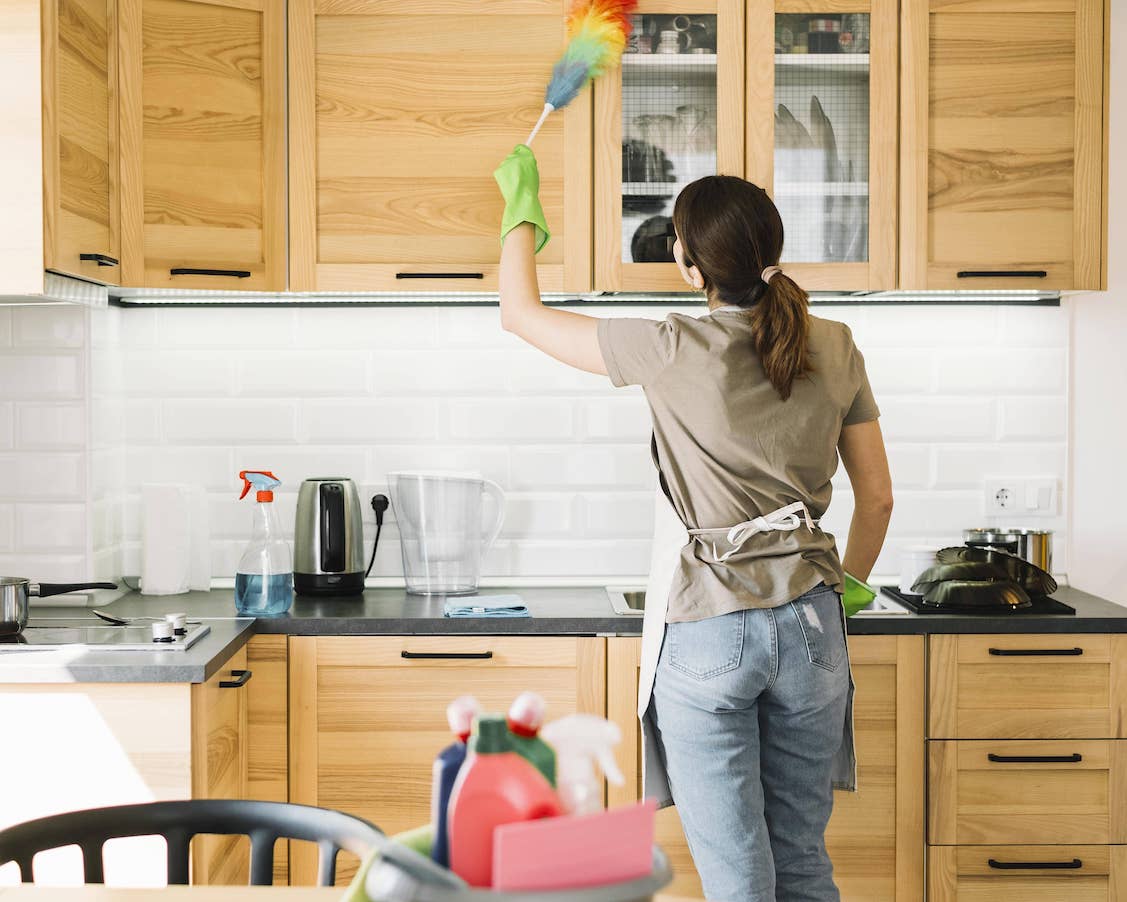

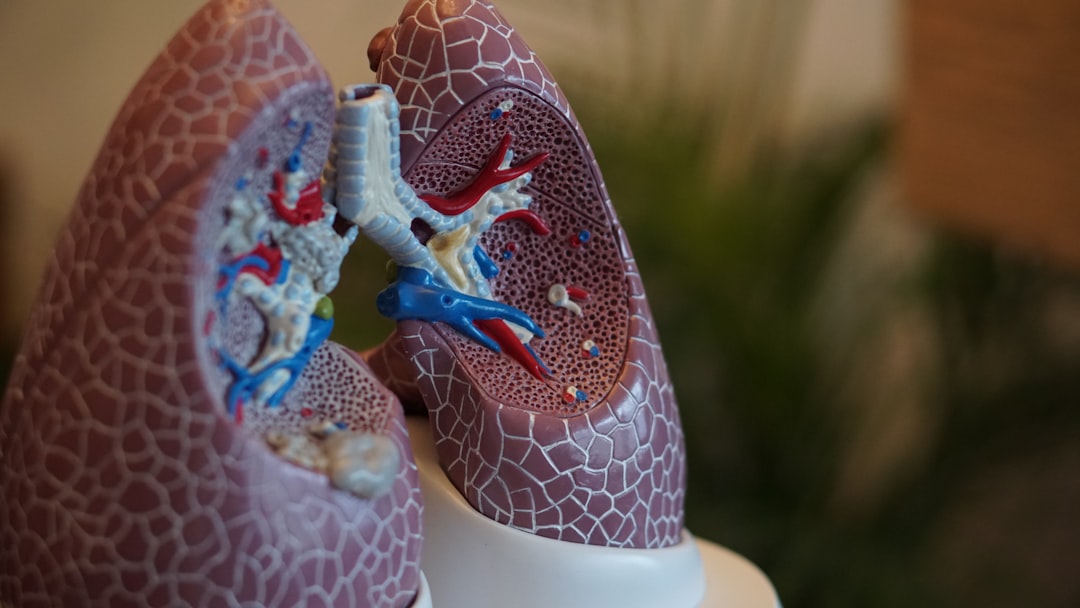



If you enjoyed this article or recipe, please consider giving it a comment! It helps others discover my blog and recipes, and your comments always make my day :) Thank you for your support!
Your email address will not be published. Required fields are marked *